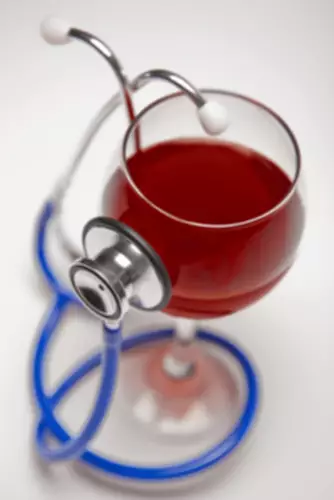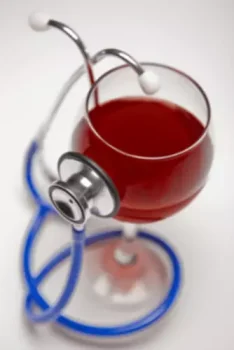Our Blog

Micronutrients, such as B vitamins, zinc, and magnesium, are equally important in recovery. These vitamins and minerals are essential for neurotransmitter synthesis, mood stabilization, and overall cognitive health. A deficiency in these nutrients can exacerbate symptoms of anxiety and depression, making recovery more challenging. Nutrition helps stabilize blood sugar levels, which is essential for managing mood swings and cravings. A well-balanced diet not only aids in replenishing the nutrients lost during addiction but also supports neurotransmitter function.
- You’ll need to be especially careful not to replace alcohol with sugar or caffeine.
- It may also depend on any other physical and mental health issues an individual has.
- Vitamin supplementation is a critical aspect of recovery from alcoholism.
- Studies suggest that lower levels of Vitamin B1 in blood serum are both created and reinforced by alcohol consumption, and craving alcohol6.
Nutritional Therapy for Alcohol Addiction
- Some studies also show that chronic alcohol intake can affect the gut and lead to digestive problems.
- Taking excessive amounts of certain vitamins, such as vitamin B6, can have adverse effects.
- It is wise to start with the lower doses if you are new to the supplement to assess how your body responds before gradually increasing the dosage.
- Address these issues while being sure to repair your body from drinking.
- It’s important to work with a healthcare provider or nutritionist to determine the appropriate use of supplements as part of a larger recovery plan.
However, some doctors dispute the use of vitamin C supplements and no official guidelines exist for treatment during alcohol withdrawal. Alcohol withdrawal syndrome (AWS) encompasses the symptoms an individual with alcohol use disorder experiences if they stop drinking suddenly, or reduce their alcohol intake significantly. This will depend on their needs and the severity of their nutrient deficiencies.
What Essential Vitamins Do Drinkers Need?
Continued drinking over long term periods causes continuing reduction of Vitamin A liver levels over time11. Studies suggest that lower levels of Vitamin B1 in blood serum are both created and reinforced by alcohol consumption, and craving alcohol6. Chronic alcoholics are typically deficient in vitamin B1 (thiamine), vitamin B6, vitamin B9 (folate), and vitamin A3.
The Importance of Seeking Help Early in Addiction Recovery
With a balanced diet rich in essential nutrients, patients can restore their physical health, combat cravings, and build resilience against relapse in the recovery journey. It can be an especially good alcohol recovery supplement for people with liver damage. Studies show that glycine is useful in treating both alcoholic hepatitis and carcinoma caused by alcoholic cirrhosis. Even if you are not suffering from these conditions, taking glycine may help protect your liver if you have a history of heavy drinking.

Veggies, fruits, fruit juices, nuts, beans, and peas naturally have folate. Heavy drinking makes it harder for your organs to work the way they’re heroin addiction supposed to, especially your stomach lining, pancreas, intestines, and liver. Loss of appetite is one of the signs of liver diseases like cirrhosis and alcoholic hepatitis. TUDCA treatment is generally considered safe for most individuals when taken at the recommended doses.

Additionally, minerals such as magnesium, zinc, and selenium can provide much-needed support for cognitive function and overall health. During recovery, specific dietary strategies can mitigate withdrawal symptoms and promote overall health. Additionally, adequate protein intake is key for neurotransmitter production, directly affecting mood regulation and cravings. Although small amounts of alcohol may not have a big impact on your https://ecosoberhouse.com/ nutritional health, many chronic, heavy drinkers struggle with significant nutrient deficiencies. Good nutrition in recovery can also boost your mental health—an important factor in maintaining your sobriety.
How to Create a Structured Daily Routine in Recovery
The chronic consumption of alcohol can disrupt the absorption and utilization of essential vitamins, creating deficiencies that can cause long-term harm. Here, we will explore the integral role vitamins play in restoring and maintaining the health of individuals in recovery from alcoholism. It’s important to remember that seeking professional medical guidance and support is crucial throughout the recovery journey. Alcohol withdrawal can be dangerous and should be supervised by healthcare professionals. They can provide personalized recommendations for supplementation and ensure safe and effective usage.
Which Vitamins are Essential for Drinkers?
It’s important to work with a healthcare provider or nutritionist to determine the appropriate length of time to take supplements. Recovering alcoholics may need supplements because alcohol abuse can deplete the body of essential nutrients. Multivitamins can help support physical health in people who are healthy, as well as people with substance use issues who have certain vitamin deficiencies. Getting off alcohol after a period of heavy drinking or alcohol abuse isn’t easy. This typically requires medical and behavioral treatment, beginning with alcohol detox.

Aubri John has been a contributing researcher and writer to online physical and mental health oriented journals since 2005. John publishes online health and fitness articles that coincide with her licensed clinical skills in addictions, psychology vitamins for recovering alcoholics and medical care. She has a master’s degree in clinical social work and a Ph.D. in health psychology.
Are TUDCA supplements FDA-approved?
DL-phenylalanine is an essential amino acid which plays an important role in the functioning of your nervous system. If your body is deficient in this amino acid, it’s common to experience fatigue, confusion, memory problems, a decrease in alertness, and to have a reduced appetite. D-phenylalanine also slows the breakdown of endorphins, which act as the body’s natural painkiller, prolonging their release into the body. Early in recovery, your body will need to readjust to the feeling of hunger. That’s why it’s important to eat three meals a day plus snacks as your body heals. One 2019 study found that a significant portion of individuals with AUD admitted to the intensive care unit (ICU) had vitamin C deficiency, with 42% being severely deficient.


